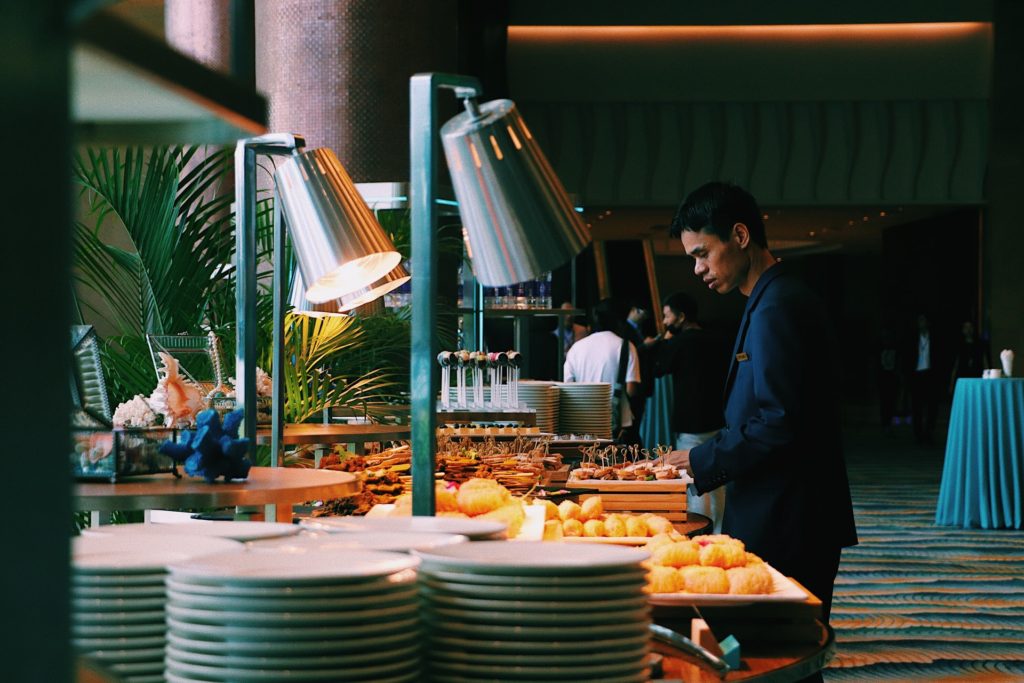Food – think GRACE before you eat
Saturday July 4, 2020 | By Ratika B.
We Indians love to feed people. We cannot bear to have someone leave our home, party or celebration without having eaten. It’s such a wonderful, hospitable culture that doesn’t scrimp on feeding the many extra uninvited guests that may turn up along with those actually invited. It would be a shame if the food ran out, so we make sure to have plentiful.
A bigger shame is that, in a country where 15% of the population sleeps hungry every night, we waste up to 40% of the food produced.
Normally, the larger the event like weddings or conferences, the more food is wasted. But whatever size your event is, you can make it more sustainable by saying (or at least thinking) GRACE.
Generate less waste
Any good caterer will tell you to order food for only about 70% of your expected numbers. Try and get prior information on your guests’ dietary habits, work with your catering partner to understand which dishes are most popular and which food items can easily be reused. Plan better through information about past consumption. Once you are aware of average consumption during each event held in the past, you’ll be in a better position to minimise food wastage for your current event.
There is a normally a demand-supply mismatch that results in high wastage. Today we have the advantage of technology to make better demand forecasting. Winnow is one of several new innovators seeking to tackle food waste. The company’s latest technology, Winnow Vision, uses cameras and artificial intelligence to evaluate discarded food, then analyzes and attaches a cost to the food that was wasted, enabling chefs to better plan ahead.
Rethink the service
Serve less, serve smart and don’t be fearful that food will run out. Most hotels and caterers normally plan 5-10percent extra, and you can always speak about having some backup items that can be brought out in case of a highly unlikely emergency. Avoid pre-plated, pre-packaged and individual items so people can take only what they need, instead of being forced to take a whole packet. A study conducted by Dr. Brian Wansink and co-authors spurred the Small Plate Movement™ that promotes utilizing smaller plates to decrease the amount of food people eat, without having any effect on their perceived fullness or satisfaction. A secondary benefit of cutting back on excess food, especially the high sugar kind, is that it makes your events more productive. Many event venues are now starting to embrace the concept of brain-friendly foods.
Avoid landfills
Food wasted on the plates needs to be properly disposed of so it doesn’t end up rotting in landfills, producing a harmful, foul-smelling, green-house gas called methane. Ensure there are clearly marked wet waste bins placed around the venue and check with your caterer or housekeeping service how they handle food waste. Most big hotels have a composting unit in their premises, if not you could check on sending it to a public composting unit, to a biogas plant, or to your local piggery.

Food wasted, whether on plates or in non-biodegradable packaging needs to be properly disposed of so it doesn’t end up rotting in landfills.
Call a collection service
Reducing wastage from the start would be ideal but preventing unutilised food from going to the landfill is vital, so make sure to have a good food waste management strategy in place. Consider food donation programmes. There are several organisations, such as All India Roti Bank Trust, Feeding India, Delhi Food Banking Network , Rasoi on Wheels and The Robin Hood Army, that collect surplus food from various channels and distribute among the needy.
Eat Fresh
Many hotels, restaurants and quality catering services are resorting to a wholesome way of cooking by sourcing local produce and adopting the concept of FLOSS (Fresh, Local, Organic, Seasonal, Sustainable). The Westin Pune Koregaon Park follows a ‘30-mile approach policy’—all its vegetables are grown at organic farms within that radius. Fresh food has a longer shelf life, a fact that can reduce food wastage, besides so many other benefits like reducing the miles travelled by food (cutting down emissions) and benefits the local farmers and communities.

Sourcing local produce and adopting FLOSS (Fresh, Local, Organic, Seasonal, Sustainable) will help reduce carbon footprint.
Reduction of food wastage through proper planning and management will not just make our event more sustainable, it also saves money and the planet. Most importantly, you’ll sleep better at night knowing that, due to your less wastage, someone else, somewhere, has had a bellyful.

